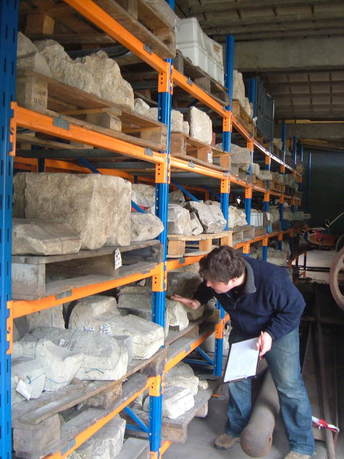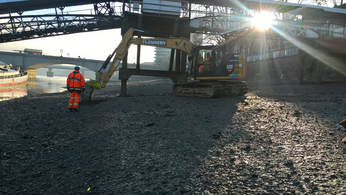Commercial archaeology
|
The introduction of competitive tendering , a by-product of the implementation of PPG16 in 1990, effectively decentralised archaeological work, which no longer was carried out automatically by the local archaeological ‘unit’. Now, for the most part, such work is carried out by a range of commercial archaeological contractors.
Developers usually approach an archaeological company because they have been advised by the local planning authority that archaeological research of one kind or another is a legal requirement of their developing the site, and they will not get planning permission until the work has been satisfactorily carried out and reported on. It is the developer’s responsibility to pay for this work. Projects are awarded to contractors on the basis not only of price, but on ability to do the work, the quality of the tender and other factors, including simply client preference. The main London based archaeological companies are MOLA , Pre-Construct Archaeology, and AOC. Most of the larger archaeological organisations now operate throughout many regions across the UK: this means that the London based companies carry out work in other regions, and organisations with their main offices elsewhere do work in London. These include Oxford Archaeology, Wessex Archaeology, and Archaeology South East. Sometimes, consultancies such as L:P Archaeology, CgMs, Ramboll and Mills-Whipp also oversee such work, acting on behalf of a client, often subcontracting fieldwork and other stages to other organisations, such as the contracting units mentioned above. The different types of archaeological works include desk-based assessments, watching briefs, evaluations, excavations and historic building recording. |


